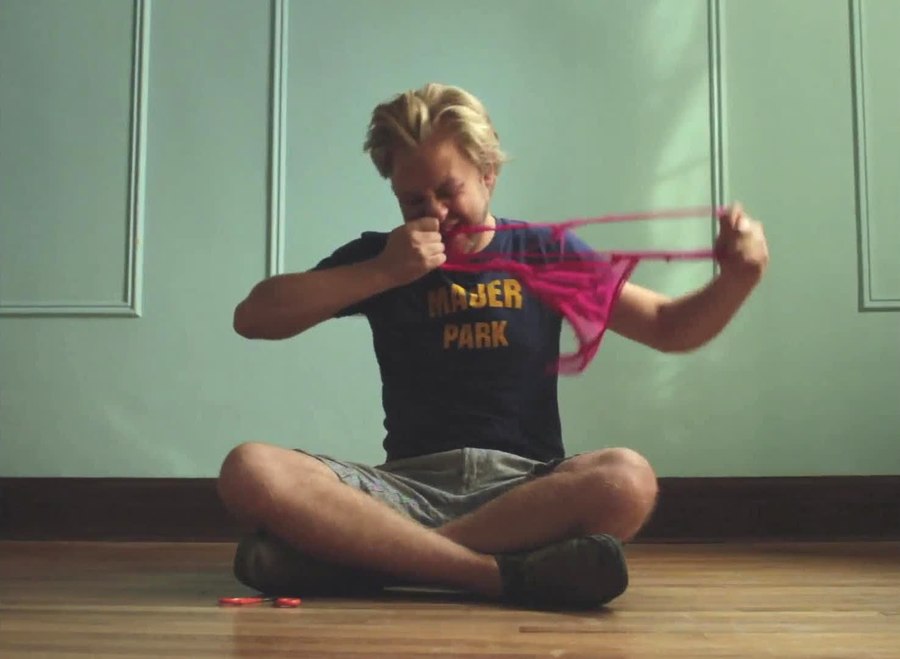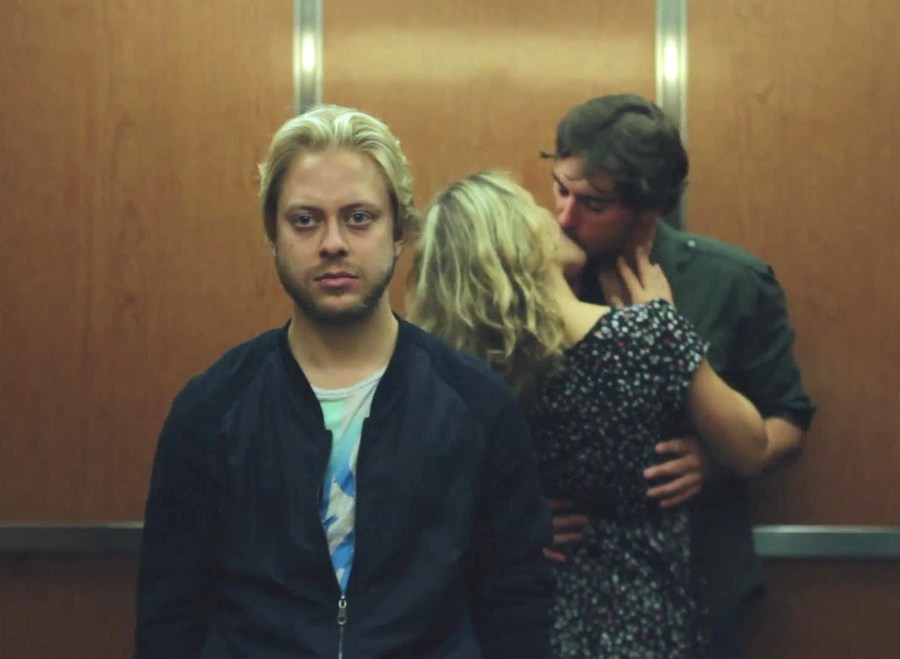“‘Tis better to have loved and lost than never to have loved at all.”
—Alfred Lord Tennyson.
“Love isn’t there to make us happy. I believe it exists to show us how much we can endure.”
—Hermann Hesse.
“The course of true love never did run smooth.”
—William Shakespeare.
Oh screw it. In the immortal words of Peter Wolf and the J. Geils Band, “Love stinks.”
Life’s a Bitch, the rapid-fire short by Montreal filmmaker François Jaros, could easily have been called Love’s a Bastard, but his title (Toutes des connes in its original French) is telling in a different way. For Phil (Guillaume Lambert, who is also the screenwriter), love defines life, both in its bloom and its absence. Life’s a Bitch is all about the anguish of its absence.
The art of the short film is in focus, clarity, and brevity. Life’s a Bitch packs in a feature film’s worth of experience in its five minutes and twenty seconds: an epic at 1/20 scale in variety and scope. In 95 scenes, Jaros and Lambert chart the mourning of couplehood after a brutally abrupt break-up (“I never loved you!” “Neither did I!”). It’s the five (more or less) stages of grief over the death of a relationship, but instead of denial, anger, bargaining, depression and acceptance, this is a cycle of self-pity, sloppy hook-ups, cheap take-out, joyless masturbation, heavy drinking and blind rage directed at the universe. Where else can you lay blame when love has left you a pathetic mess?
There’s nothing funny about the end of love when you’re mired in its misery. But as the saying goes, comedy is tragedy plus time. Cut the dreary days of hollow-eyed listlessness and the desperate nights of looking for distraction down to a machine gun montage of snapshots and it can be downright hilarious. Each scenelet is perfectly pitched, an idea distilled into a single image, an experience captured a simple action, a gag condensed and refined to its essence. Those short, sharp shots make an instant impression. The accumulation of so much experience is crammed into the brief running time, so much time collapsed into a black hole of remorse and recovery, that it creates an experience.
If love is a drug, Life’s a Bitch is all about withdrawal. It’s true that Jaros and Lambert see it through a decidedly male perspective, but they turn that perspective back on themselves with self-effacing recognition. In their own way they even acknowledge that sex, while a primal force and an animal instinct, isn’t a satisfying substitute. Sure, it doesn’t stop Phil from seeking it out, but as the film so energetically shows during a brief giddy rebound of a whirlwind romance, a patch of summer sun in the winter of his discontent, it’s much more fun when it’s part of the package. For all the film’s self-aware humor, Phil’s ordeal is relatable, even recognizable, to anyone who has gone down the rabbit hole of a post-break-up funk. Like Phil, we know all there is to know about the crying game.
Which is not to say Life’s a Bitch holds the answer to the mysteries of love. Far from it. If anything, it recognizes how it holds us prisoner. There’s no attempt to explore relationships, worry about long-term compatibility, or understand the magic behind passion. We don’t root for the couple to overcome obstacles. This is the love reduced to hormonal bursts and emotional impulses, the crazy things it makes us do, the illogical joy it brings us, the misery it creates in its absence. Our hapless hero is just as confused as the rest of us. All he knows is that he’s happier when he’s in love. In the end, that trumps all logic.








